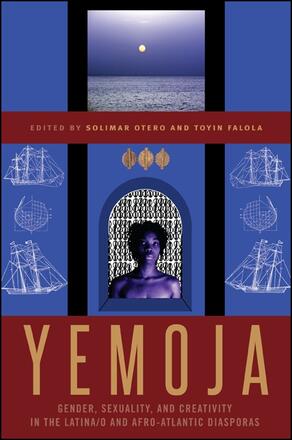
Yemoja
Gender, Sexuality, and Creativity in the Latina/o and Afro-Atlantic Diasporas
Alternative formats available from:
Bridges theory, art, and practice to discuss emerging issues in transnational religious movements in Latina/o and African diasporas.
Description
Finalist for the 2014 Albert J. Raboteau Prize for the Best Book in Africana Religions presented by the Journal of Africana Religions
This is the first collection of essays to analyze intersectional religious and cultural practices surrounding the deity Yemoja. In Afro-Atlantic traditions, Yemoja is associated with motherhood, women, the arts, and the family. This book reveals how Yemoja traditions are negotiating gender, sexuality, and cultural identities in bold ways that emphasize the shifting beliefs and cultural practices of contemporary times. Contributors come from a wide range of fields—religious studies, art history, literature, and anthropology—and focus on the central concern of how different religious communities explore issues of race, gender, and sexuality through religious practice and discourse. The volume adds the voices of religious practitioners and artists to those of scholars to engage in conversations about how Latino/a and African diaspora religions respond creatively to a history of colonization.
Solimar Otero is Associate Professor of English and Folklore at Louisiana State University and author of Afro-Cuban Diasporas in the Atlantic World. Toyin Falola is Frances Higginbotham Nalle Centennial Professor in History at the University of Texas at Austin. His many books include Culture and Customs of Libya (coauthored with Jason Morgan and Bukola Adeyemi Oyeniyi); Women's Roles in Sub-Saharan Africa (coauthored with Nana Akua Amponsah); and Africa After Fifty Years: Retrospections and Reflections (coedited with Maurice Amutabi and Sylvester Gundona).